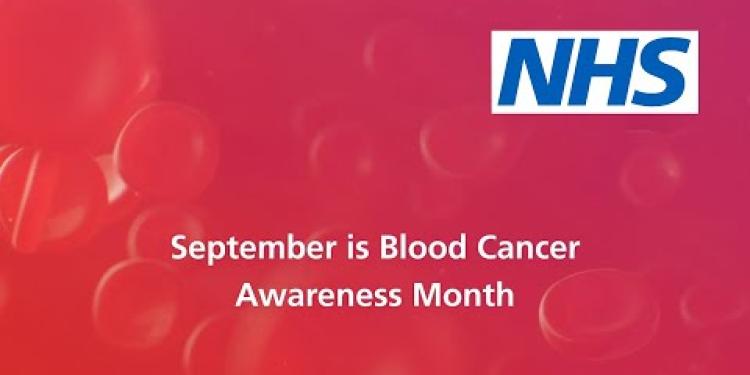Find A Professional
More Videos On This Subjectdiagnosis
Signs and symptoms of leukaemia
Leukemia is a type of cancer that affects the blood and bone marrow, leading to the overproduction of abnormal white blood cells. Symptoms of leukemia can vary depending on the type of leukemia, the stage of the disease, and individual factors. Here are some common symptoms:
- Fatigue: Persistent tiredness or weakness that doesn't improve with rest.
- Frequent infections: Increased susceptibility to infections due to a weakened immune system.
- Unexplained weight loss: Significant and unexplained weight loss over a short period.
- Fever or chills: Recurrent fever or chills without any apparent cause.
- Easy bruising or bleeding: Excessive bruising, prolonged bleeding from minor cuts, or frequent nosebleeds.
- Pale skin: Skin may appear paler than usual due to anemia caused by a low red blood cell count.
- Shortness of breath: Difficulty breathing or shortness of breath, especially during physical activity.
- Enlarged lymph nodes: Swollen lymph nodes in the neck, armpits, or groin.
- Swollen abdomen or spleen: Enlargement of the abdomen or spleen, which may cause discomfort or a feeling of fullness.
- Bone pain or tenderness: Pain or tenderness in the bones, joints, or abdomen.
- Headaches: Persistent or severe headaches, sometimes accompanied by vision problems.
- Night sweats: Profuse sweating, particularly at night, unrelated to temperature or activity level.
- Frequent urination: Increased need to urinate, especially at night.
- Difficulty concentrating or memory problems: Cognitive difficulties such as trouble concentrating, memory loss, or confusion.
- Rash or spots: Unexplained rash, tiny red spots (petechiae), or purplish patches (ecchymosis) on the skin.
It's important to note that these symptoms can also be caused by other medical conditions, so if you experience any of these symptoms, it's essential to see a healthcare professional for a proper evaluation and diagnosis. Additionally, leukemia can sometimes be present without causing any noticeable symptoms, especially in the early stages, which underscores the importance of regular medical check-ups and screenings.
Leukaemia: Signs and Symptoms
Understanding Leukaemia
Leukaemia is a type of cancer that affects the blood and bone marrow, the spongy tissue inside bones where blood cells are produced. It leads to the production of abnormal white blood cells, which can crowd out normal blood cells and impede their function. This information is intended for readers in the United Kingdom with guidance from the NHS.
Common Signs and Symptoms
The signs and symptoms of leukaemia can vary depending on the type and stage of the disease. Here are some common indicators:
Fatigue and Weakness
Persistent fatigue and general weakness are common symptoms of leukaemia. These symptoms arise because the body’s ability to produce healthy red blood cells is hampered, leading to anaemia.
Frequent Infections
Leukaemia can impair the immune system. Individuals may notice they are getting more frequent or severe infections, such as frequent fevers, colds, or respiratory infections.
Unexplained Bruising and Bleeding
Easy bruising, frequent nosebleeds, bleeding gums, or petechiae (small red or purple spots on the skin) can be signs of leukaemia due to a reduced number of platelets, which are essential for blood clotting.
Swollen Lymph Nodes
Swelling of the lymph nodes, typically in the neck, armpit, or groin, can be a sign. This swelling is generally painless.
Bone and Joint Pain
Some people with leukaemia may experience pain or tenderness in bones or joints due to the overcrowding of abnormal cells in the bone marrow.
Night Sweats and Fever
Persistent night sweats and unexplained fevers are also common symptoms. These symptoms can be linked to the body’s response to the cancer cells.
Unintended Weight Loss
A significant and unexplained weight loss can be a sign of leukaemia. The body uses more energy than usual fight the disease, leading to weight loss.
When to Seek Medical Advice
If you have several symptoms of leukaemia or any concerns about your health, it’s crucial to seek medical advice. Early diagnosis and treatment are essential for the best outcomes.
Conclusion
Recognising the signs and symptoms of leukaemia can help in early detection and treatment. For more information or if you have concerns, consult with a healthcare professional or visit the NHS website.
Frequently Asked Questions
What are the most common signs and symptoms of leukaemia?
The most common signs and symptoms of leukaemia include fatigue, frequent infections, unexplained weight loss, easy bruising or bleeding, swollen lymph nodes, and night sweats.
Is unexplained weight loss a symptom of leukaemia?
Yes, unexplained weight loss is one of the symptoms that may indicate leukaemia.
Can frequent infections be a sign of leukaemia?
Yes, frequent infections can be a sign of leukaemia due to the weakened immune system.
What causes easy bruising or bleeding in leukaemia patients?
Easy bruising or bleeding occurs due to a low platelet count, which is a characteristic of leukaemia.
Are swollen lymph nodes associated with leukaemia?
Yes, swollen lymph nodes can be a symptom of leukaemia.
Is fatigue a common symptom of leukaemia?
Fatigue is indeed a common symptom experienced by leukaemia patients.
What role does anaemia play in leukaemia symptoms?
Anaemia, characterized by a low red blood cell count, often leads to symptoms like fatigue and breathlessness in leukaemia patients.
Can night sweats be an indication of leukaemia?
Yes, night sweats are one of the symptoms that may be associated with leukaemia.
What does a high white blood cell count signify in leukaemia?
A high white blood cell count can indicate the presence of leukaemia, as the disease often leads to the overproduction of abnormal white blood cells.
Are joint and bone pains related to leukaemia?
Yes, joint and bone pains are common symptoms of leukaemia due to the abnormal white blood cells accumulating in the bone marrow.
Is there a connection between leukaemia and unexplained fever?
Unexplained fevers can be a symptom of leukaemia due to infections or the body's response to the cancer.
Can leukaemia cause shortness of breath?
Yes, leukaemia can cause shortness of breath, particularly if anaemia is present.
Does leukaemia affect both children and adults?
Leukaemia affects both children and adults, although certain types are more common in different age groups.
Are there specific signs of leukaemia in children?
In children, signs of leukaemia can include pale skin, lethargy, frequent infections, and unusual bleeding or bruising.
How important is it to see a GP if experiencing symptoms of leukaemia?
It is very important to see a GP if you experience symptoms of leukaemia. Early diagnosis and treatment are crucial for better outcomes.
Useful Links
Useful links from: An Interview With JC About His Leukemia And His Leukemia Treatment
- NHS - Leukemia Comprehensive information about leukemia, including symptoms, causes, diagnosis, and treatment on the NHS website.
- Blood Cancer UK - Leukaemia Blood Cancer UK offers detailed information about different types of leukemia, symptoms, treatments, and personal stories.
- Cancer Research UK - Leukaemia Cancer Research UK provides extensive resources about leukemia, its types, research progress, and patient support options.
- Leukaemia Care - Leukaemia Information Leukaemia Care offers resources for understanding leukemia, patient support services, and advice on managing the condition.
Useful links from: 4 facts about blood cancer that you should know | NHS
- NHS - Blood Cancer This NHS page provides comprehensive information on blood cancer, including its types, symptoms, diagnosis, and treatment options.
- Cancer Research UK - What is Blood Cancer? Cancer Research UK offers detailed information on blood cancer, covering its types, how it develops, and current research efforts.
- Leukaemia Care - Blood Cancer Types Leukaemia Care provides an informative guide on the different types of blood cancer, highlighting the symptoms and treatments for each type.
- Bloodwise (now Blood Cancer UK) - Understanding Blood Cancer Blood Cancer UK offers resources and support for those affected by blood cancer, including detailed information on understanding the disease, its diagnosis, and available treatments.
More Videos On This Subjectdiagnosis
Have you found an error, or do you have a link or some information you would like to share? Please let us know using the form below.
- Ergsy carfully checks the information in the videos we provide here.
- Videos shown by Youtube after a video has completed, have NOT been reviewed by ERGSY.
- To view, click the arrow in centre of video.
- Most of the videos you find here will have subtitles and/or closed captions available.
- You may need to turn these on, and choose your preferred language.
- Go to the video you'd like to watch.
- If closed captions (CC) are available, settings will be visible on the bottom right of the video player.
- To turn on Captions, click settings .
- To turn off Captions, click settings again.

